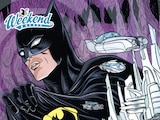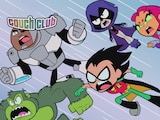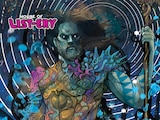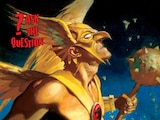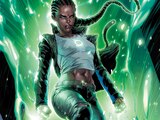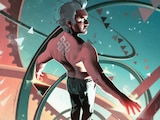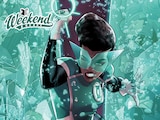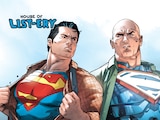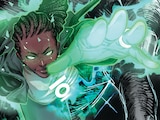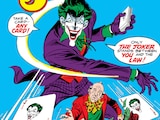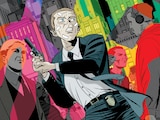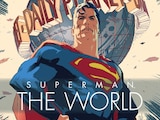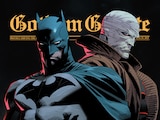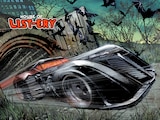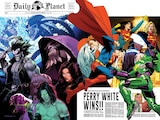She doesn’t occupy the story for long, but I couldn’t help but be fascinated with young Diana in Wonder Woman. The only child on an island of adults, her childhood would be unlike any other in history. What would that be like? Something tells me it wouldn’t go smoothly, and after reading Jill Thompson’s original graphic novel, WONDER WOMAN: THE TRUE AMAZON, it’s clear I’m not the only Wonder Woman fan who feels that way.
I’m not surprised a storyteller as gifted as Thompson would choose Diana’s childhood for the subject of her story. Recounting the histories of our favorite fictional characters is sometimes easier than detailing our own pasts. The events of childhood and teenage years fade over time, and you have to dig around the basement to find photo albums or VHS tapes to turn your blurry recollections into focused memories. But with characters we adore, we seem to be able to latch onto their backstories, their personalities, and even minute details such as their various outfits or costumes. Even if a character's story hasn't followed the same exact path over decades—like with comics, for example—we have space to absorb it all and shuffle information around. Each story contributes layers that enrich a character. That's certainly what The True Amazon does for Diana of Themyscira.
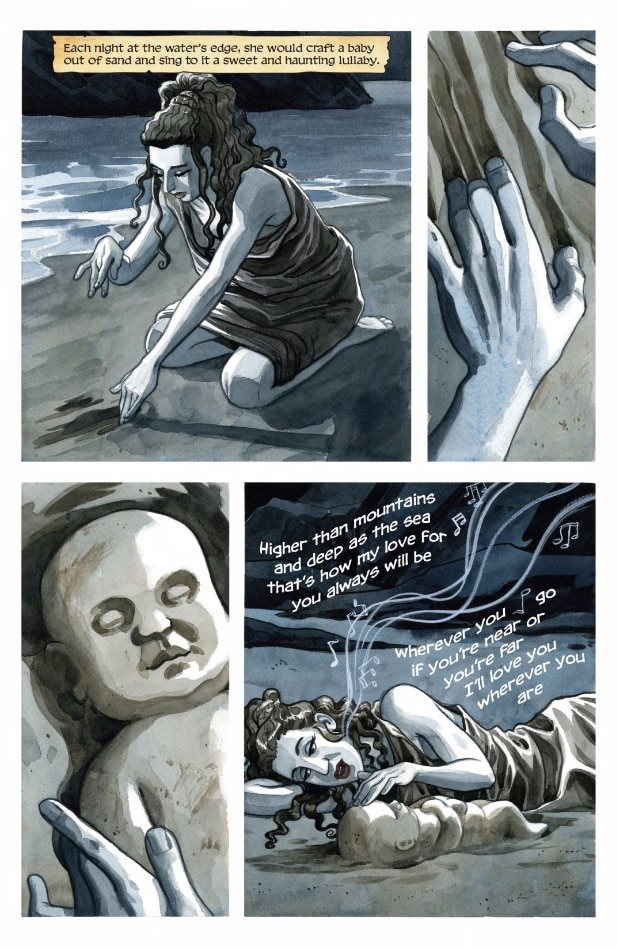
Her tale begins before the birth of Diana and presents a portrait of the young Amazonian princess unlike any I've read. Queen Hippolyta longed for a child, and through a miraculous sequence of events, Diana was born from sand on the beach and came into her life. As the first daughter of Themyscira, Diana was doted upon and adored. As soon as I started reading about the attention and special treatment lavished upon Diana, I had one thought: All of this would probably make her a spoiled brat.
And she was. She had nearly every Amazon on Themyscira wrapped around her finger and knew it. Diana became demanding and positively intolerable. Her behavior as a child reminded me of frustrating encounters with spoiled kids in my teenage babysitting days. (Related, my babysitter days didn't last long.)
Thompson's take on Diana's background unfolds like a fairy tale. With the art and words, she relates Diana's selfish actions as a cautionary tale. At first, Diana doesn't suffer any consequences. She cries, charms, whines and does whatever it takes to get her way. Instead of being punished for her petulance with time-outs or mucking out the stables, she's indulged at every turn.
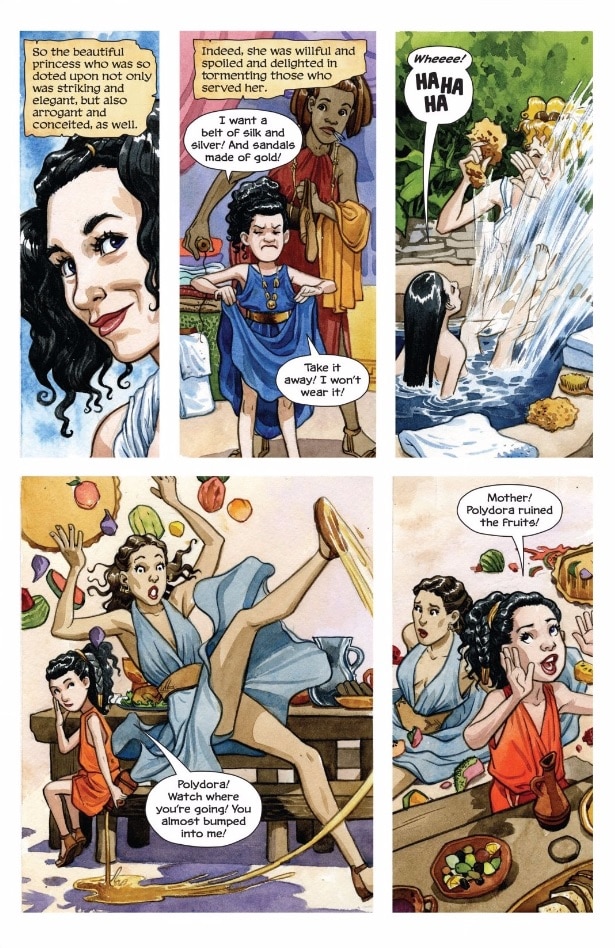
I expect it from Queen Hippolyta because I can imagine it's easy to indulge the miracle child you never thought you'd have, but the rest of the Amazons? What gives? Diana's more than annoying; she's cruel. She makes adults cry, for goodness' sake. Someone should have said no to Diana or talked to Hippolyta.
Diana got so accustomed to everyone sucking up to her, that she was maddened when one girl, Alethea, wasn't impressed. There's relatability there. There certainly is for me.
When I was younger, I wanted everyone to like me. I wasn't a "popular" kid, but I still wanted people to have a positive impression of me. Despite my efforts to not care what anyone else thinks about me (because, really, it doesn't matter), I still fall into that trap from time to time. It's all too easy. However, I don't think most people follow in Diana's footsteps and go overboard trying to charm the person who doesn't care about them—not unless said people are in a sitcom.
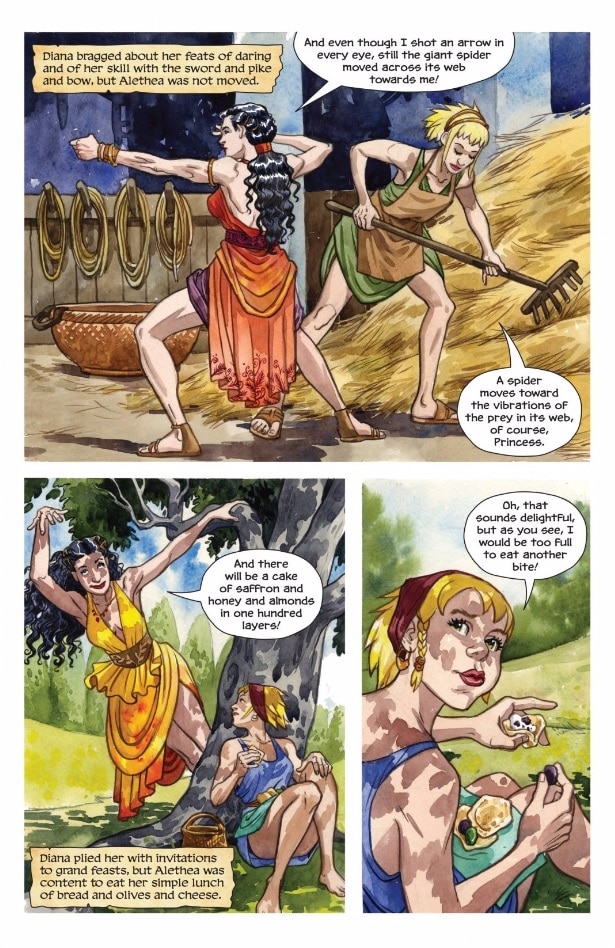
One of the delightful things about fairy tale-style stories is that aspects like Diana's brattiness and her overeagerness to make every single person be dazzled by her presence are extreme examples. The negative actions and traits are exaggerated. You can't help but notice how much Diana has filled the "I'm the worst" thermometer to the top. The dramatics mean a stronger emotional investment in the story and a more weighty reaction to the events. They make the repercussions that eventually fall upon Diana's shoulders all the more harsh.
In this iteration of Wonder Woman, Diana leaves Themyscira and takes on the mantle of Wonder Woman because she's been banished. Her foolish move during an American Ninja Warrior-esque competition between the Amazons led to bloodshed, destruction, and several deaths—including the loss of Alethea. I'm not used to seeing Wonder Woman make a mistake so monumental, and it struck a chord.
If Diana wouldn't have felt remorse for what she did or if Hippolyta would have coddled her instead of taking the harder road, this could have easily been the beginning of a villain's path. It's why the ending is so important. Diana understands the impact and futility of her greedy sabotage, and she makes a choice to be a better person. Her realization doesn't erase the lives lost or the anger of her Amazonian sisters, but she commits to spending the rest of her days atoning for what she did. She decides to be a hero, and that's something we—regardless of whether we have a Lasso of Truth or super powers—can all do.
WONDER WOMAN: THE TRUE AMAZON by Jill Thompson is now available in print and as a digital download.

